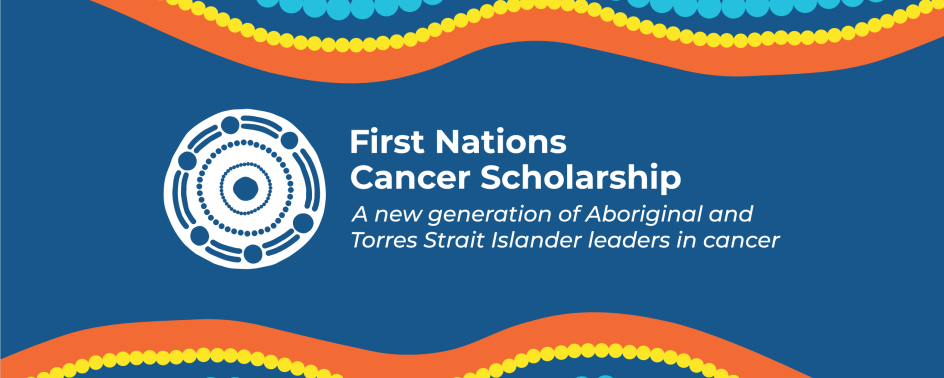
The Albanese Labor Government today announced the recipients of the inaugural round of the First Nations Cancer Scholarships, which provides financial support to Indigenous postgraduate students engaged in cancer-related studies or research.
Funded through Cancer Australia and led by the Aurora Foundation, these scholarships are part of a $5.9 million, four-year commitment to expand the pipeline of Aboriginal and Torres Strait Islander people actively involved in cancer policy making, research and care delivery.
Cancer is a key contributor to the life expectancy gap between Aboriginal and Torres Strait Islander people and non-Indigenous Australians, with Aboriginal and Torres Strait Islander people being more likely to be diagnosed with cancer, more likely to die from cancer, and have a lower 5-year relative survival comparative.
Achieving equity in health outcomes between Aboriginal and Torres Strait Islander and non-Indigenous Australians is a key priority under the Australian Cancer Plan, which gives priority to support for community-led approaches to assisting First Nations people affected by cancer.
To this end, Cancer Australia partnered with the Aurora Foundation - an Indigenous organisation with a history of building successful Indigenous scholarship and education programs - to co-design, promote, administer and evaluate the scholarship program.
The first five recipients are extraordinary students from across the nation. Among the awardees, four will be undertaking Doctor of Medicine programs at various Australian universities.
These include:
- Balarnu, Waluwarra and Wangkayujuru man Brodie Seymour,
- Gundungurra woman Eden Slicer,
- Ngarkat woman Kayla Vitale, and
- Kasarina Mann, who is a descendant of the Kulburri-warra clan of the Kuku Yalanji, Guugu Yimidthirr, Yidnji and Barbarum nations.
The fifth recipient, Khwanruethai Ngampromwongse, who identifies as Wiradjuri and Ngemba Wayilwan, will embark on a PhD program at the Australian National University.
More information on the scholarship program is available on the Aurora Foundation website.
Quotes attributable to Assistant Minister for Indigenous Health Ged Kearney:
“To improve cancer outcomes for First Nation Australians, we must increase Indigenous and Torres Strait Islander representation in the field – that’s exactly what these landmark scholarships support.
“These scholarships are going to change lives. For the recipients, for their communities and for First Nations Australians from the Top End to Tasmania.
“As a former nurse myself, I can’t think of a better field to enter than healthcare policy, research and delivery. Congratulations to all the scholarship recipients.
Quotes attributable to Aurora Education Foundation CEO Leila Smith
“The First Nations Cancer Scholarship recipients will bring more Indigenous healthcare professionals into the cancer care space, creating a lasting impact on the health, wellness and longevity of our people and communities. I am incredibly proud of our scholars, and I look forward to seeing the skills and experience they will bring to the cancer field in the coming years.”
Quotes attributable to Cancer Australia CEO Professor Dorothy Keefe
“Cancer remains the leading cause of mortality among Aboriginal and Torres Strait Islander Australians, yet less than 1% of health professionals identify as First Nations.
“Recognising the urgent need to strengthen the Indigenous cancer workforce, this scholarship program forms part of our commitment under the Australian Cancer Plan to grow the capacity of Indigenous health professionals and researchers.”
About the recipients:
Balarnu, Waluwarra and Wangkayujuru man Brodie Seymour is entering the final year of a Doctor of Medicine degree at Griffith University. His uncle’s experience of geographical isolation from the healthcare system and Country while managing a cancer diagnosis inspired Brodie to become a practitioner and researcher focusing on oncology and improving access to on-Country cancer prevention, screening, and treatment services.
Gundungurra woman Eden Slicer is entering her second year of medicine at the University of New South Wales. Eden plans to establish regional and remote community neuro-oncology outreach clinics that promote early detection and the development of sustainable healthcare relationships with community, as well as undertaking genomic research to understand the unique biology of cancers impacting First Nations people.
Ngarkat woman Kayla Vitale is entering her second year of study at Flinders University. Having begun her career as a registered nurse interested in childhood brain cancer, Kayla decided to pursue a Doctor of Medicine following her father’s cancer diagnosis. Kayla wants to support health practitioners in delivering cancer education programs informed by local community priorities, focusing on early detection, prevention, and patient-centred culturally embedded practice.
Ngemba Wayilwan person Khwanruethai Ngampromwongse is starting their PhD this year at Australian National University. Khwanruethai’s thesis, Cancer Screening at the Intersection: supporting LGTBQISB+ First Nations peoples’ access to culturally safe, sexuality and gender-affirming cervical screening, is aimed at enhancing the effectiveness and accessibility of these critical services and will contribute to developing policies and practices that meet the needs of LGBTQISB+ First Nations peoples.
Descendent of the Kulburri-warra clan of the Kuku Yalanji, Guugu Yimidthirr, Yidnji, and Barbarum nations Kasarina (Kas) Mann is starting her final year of medicine at the University of Sydney. Kas plans to pursue a career in gynaecological oncology practice and research. She aims to address inequities experienced by First Nations women in cancer care by providing cultural safe care and increasing participation and access to early detection services, such as HPV screening and self-collected HPV tests.
Cancer Australia was established by the Australian Government in 2006 to benefit all Australians affected by cancer, and their families and carers. Guided by the Australian Cancer Plan, Cancer Australia aims to reduce the impact of cancer, address disparities and improve outcomes for people affected by cancer by leading and coordinating national, evidence-based interventions across the continuum of care.

